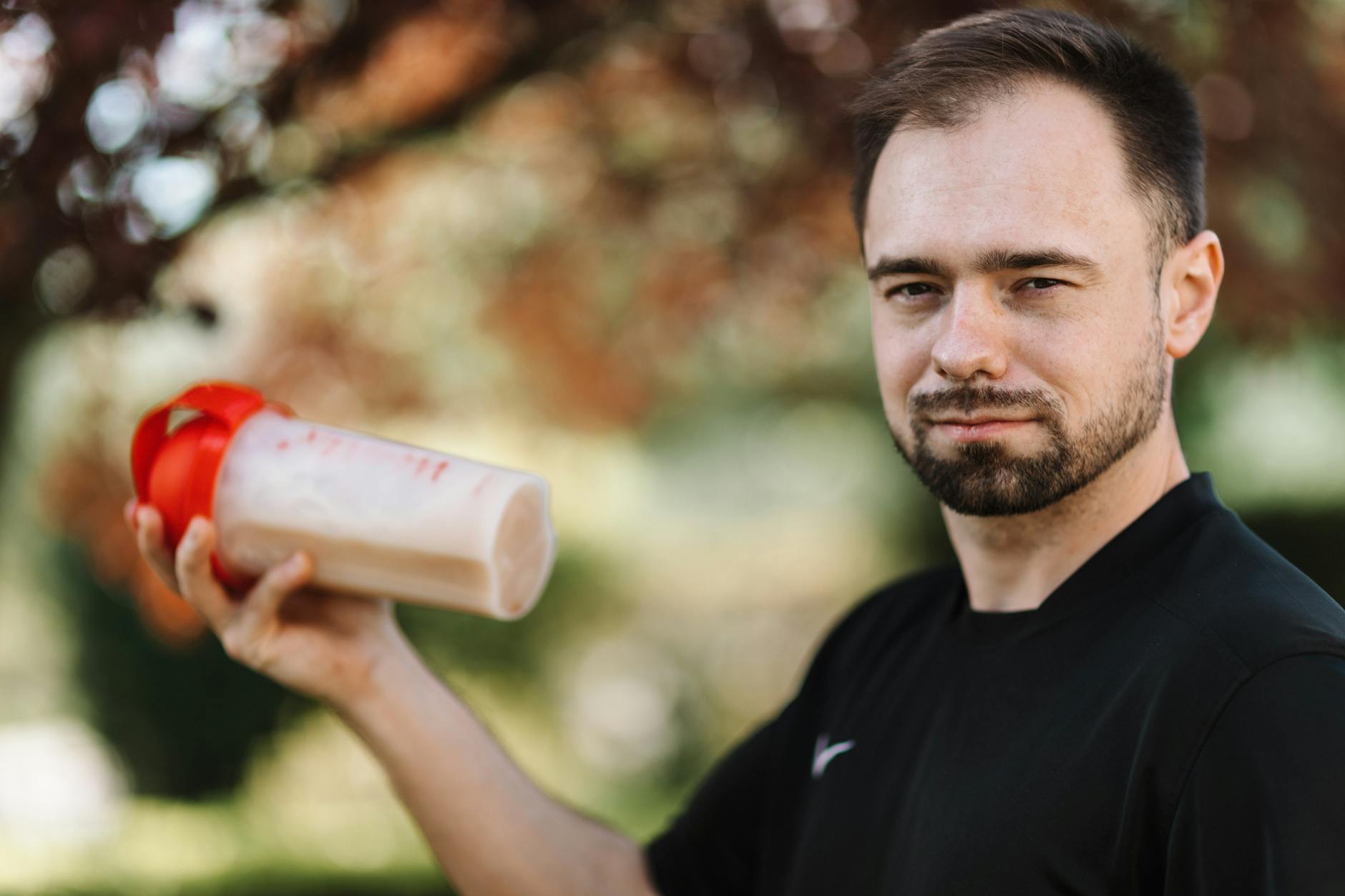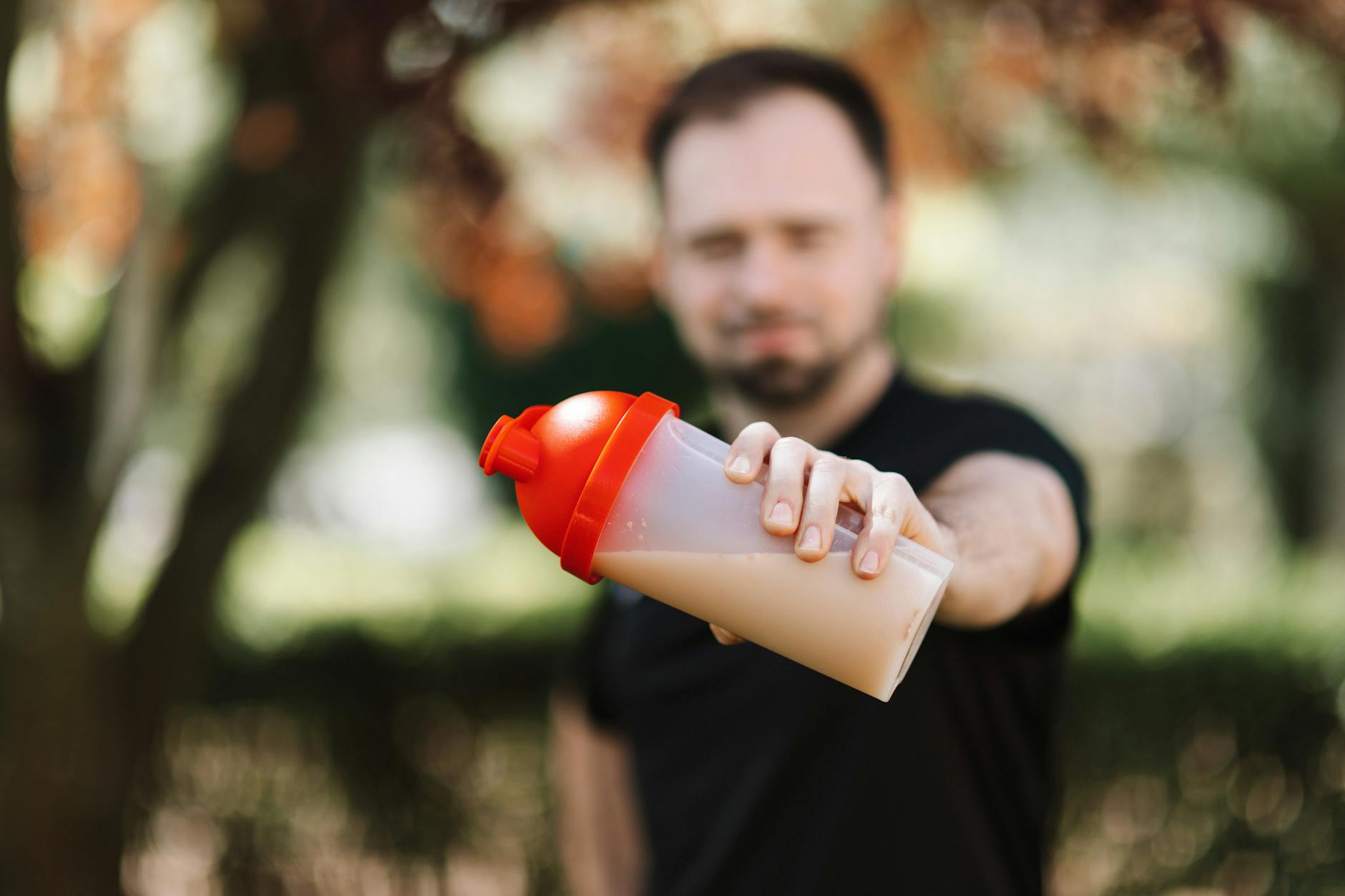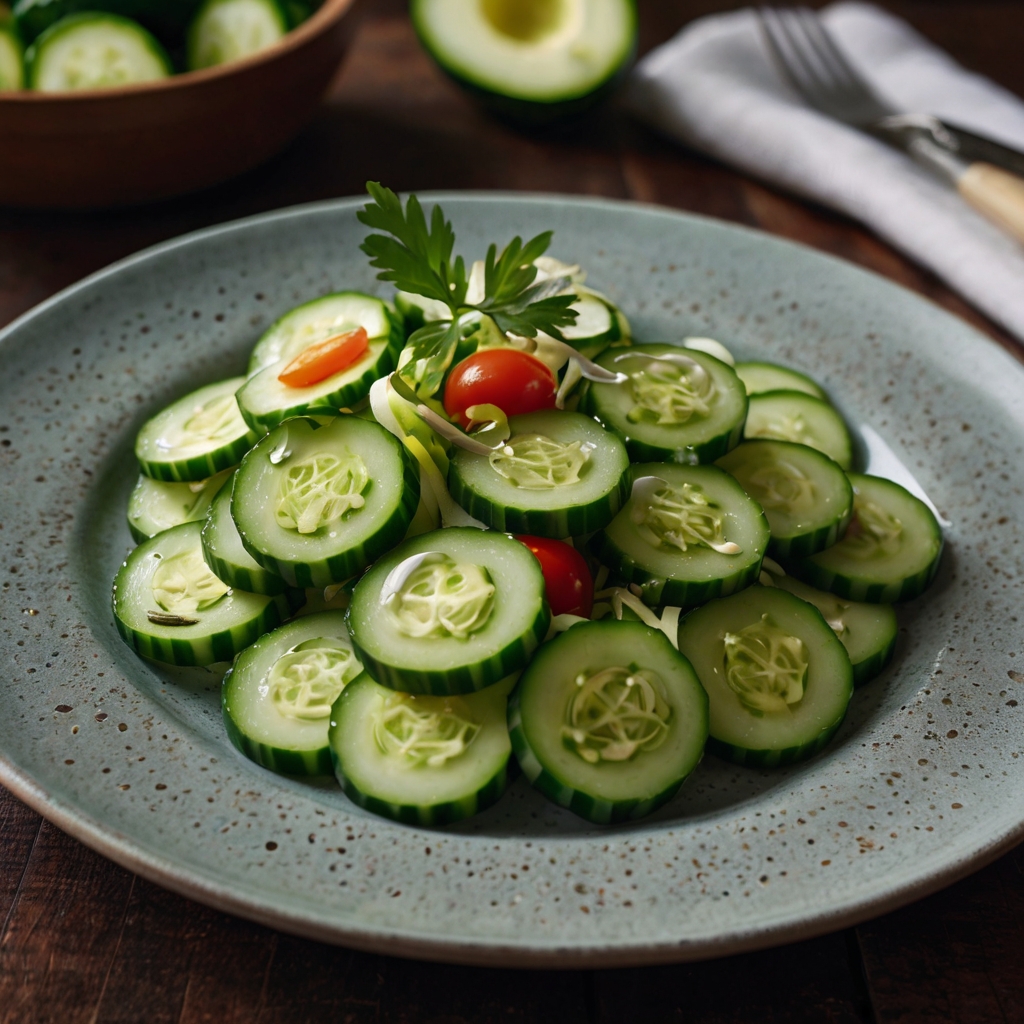Building muscle takes more than just hitting the gym hard—it starts with what you put into your body. Nutrition plays a key role in helping you bulk up, and protein shakes are a simple way to get the extra fuel your muscles need. These shakes provide the right balance of protein and calories, supporting muscle repair and growth after tough workouts.Protein shakes for bulking up are a great way to help you gain healthy weight, build muscle, and recover faster after your workouts
In this post, you’ll learn how protein shakes fit into your bulking routine, which types work best, and how to use them effectively. Getting your nutrition right makes a big difference in reaching your muscle-building goals.
Understanding Bulking and Muscle Growth
If you’re serious about bulking up, it’s important to understand what exactly bulking means and how muscle growth happens. The process isn’t just about eating a lot or lifting heavy weights—it’s about creating the right conditions both inside and outside the gym. Let’s break down the core concepts of bulking, the role of calorie surplus, and how muscle hypertrophy ties everything together.
What is Bulking?
Bulking is a phase where the goal is simple: gain muscle mass. This usually involves eating more calories than your body burns, allowing you to build muscle faster. Think of bulking as “filling the tank” so your body has extra fuel to repair and grow muscle fibers after intense workouts. The key is consuming enough protein and calories consistently to support this muscle-building process.
Bulking isn’t just about packing on weight—it’s about adding lean muscle, not just fat. Many bodybuilders and fitness enthusiasts cycle through bulking and cutting phases to strategically build muscle and reduce fat.
For more insights, check out Bulking: What It Is and How to Do It.
Calorie Surplus and Its Importance
A calorie surplus means eating more calories than you burn daily. Without this surplus, your body won’t have the extra energy needed to build new muscle tissue. Imagine muscle growth like constructing a house—you need supplies beyond your usual budget to add new rooms.
To gain muscle, most people aim to consume around 10-20% more calories than their maintenance level. This surplus supports muscle recovery and growth without excessive fat gain if done properly. The type of calories matters too—quality carbs, fats, and most importantly, protein, all play crucial roles.
Getting your calorie surplus right means balancing your nutrition carefully. If you overshoot, you’ll gain unwanted fat; undershoot, and muscle gain slows down.
Learn more about how a calorie surplus drives muscle gain at Is a Caloric Surplus Necessary to Build Muscle?.
Muscle Hypertrophy and Nutrition
Muscle hypertrophy is the term for muscle growth—you build muscle by making your muscle fibers thicker and stronger. This happens primarily through resistance training combined with proper nutrition.
Protein is the star player in hypertrophy. When you work out, muscle fibers undergo small tears. Protein helps repair these tears, making the muscle bigger and stronger. Your body’s ability to stimulate muscle protein synthesis (MPS) depends heavily on getting enough high-quality protein regularly throughout the day.
Besides protein, nutrients like carbs provide energy for workouts, while fats support hormone production essential for muscle growth. Timing your protein intake around workouts can boost the hypertrophy process even more.
Studies recommend consuming about 20-25 grams of high-quality protein per meal to maximize muscle protein synthesis, especially around exercise times. This is why protein shakes are a popular, easy way to fill that gap.
For a closer look at nutrition’s role in muscle growth, see Dietary protein for muscle hypertrophy.

Photo by Kaboompics.com
Fuel your gains without breaking the bank — discover budget-friendly protein power!
Benefits of Protein Shakes for Bulking
When you’re focused on bulking up, protein shakes become more than just a tasty drink—they’re a practical tool that fits seamlessly into your busy schedule and muscle-building goals. These shakes pack a powerful punch of protein and nutrients, helping you stay on track with your daily intake while supporting your workouts and recovery. Let’s explore the key benefits that make protein shakes an essential part of bulking nutrition.
Convenient and Quick Source of Protein
Protein shakes offer an unbeatable combination of speed and ease. After a tough workout, your muscles are breathing out a signal that they need protein right away to start recovering. Instead of spending time cooking a full meal, you can shake up a protein drink in minutes. This convenience helps you maintain consistent protein intake without hassle.
- Perfect for busy mornings or post-gym refueling.
- Portable and easy to consume on the go.
- Removes the guesswork—protein shakes have a set protein amount per serving.
This quick fix can keep you fueled through a long day when preparing protein-rich meals isn’t always realistic. In fact, many people rely on protein shakes as a reliable fallback in their daily nutrition.
Supports Muscle Protein Synthesis
Muscle protein synthesis (MPS) is the process your body uses to repair and build muscle. Protein shakes provide the essential amino acids your body needs to kickstart this process right after training.
Protein powders, especially those based on whey, are absorbed quickly into your bloodstream, delivering amino acids almost instantly. This fast delivery optimizes MPS during the critical “anabolic window” following exercise, helping your muscles grow stronger and bigger.
A study published by the NIH explains how nutrient availability directly influences muscle protein synthesis, which is vital for muscle growth—something protein shakes support efficiently.
Helps Meet Increased Protein Needs
Bulking means you need more protein than usual—often 1.6 to 2.2 grams per kilogram of body weight daily. Getting this much protein through whole foods alone demands a lot of time, planning, and cooking.
Protein shakes help fill that gap effortlessly:
- They make hitting protein targets easier without excess calories.
- You can control portions precisely, reducing food waste or overeating.
- They complement a varied diet, ensuring you don’t miss crucial building blocks.
If you ever find yourself struggling to eat enough during the day, a shake can be a simple answer to raising your protein intake without dragging down your digestion or time.
Versatility and Customization
One of the standout features of protein shakes is their adaptability. You’re not locked into a one-size-fits-all approach.
- Add fruits, oats, or nut butters for extra calories and nutrients.
- Use different types of protein powders—whey, casein, pea, or rice—to suit your taste and dietary needs.
- Adjust shake sizes for snacks, meal replacements, or post-workout boosts.
This flexibility means you can tailor shakes to your unique bulking plan, making nutrition enjoyable rather than a chore.

Photo By: Kaboompics.com
For a closer look at how protein shakes can boost muscle gain and recovery, Healthline’s article on protein shakes offers solid science-backed insights. Additionally, Nebraska Medicine’s take on protein powder explains how shakes fit into both bulking and slimming routines effectively.
Types of Protein Shakes Suitable for Bulking
Choosing the right protein shake plays a big role when you’re bulking. It’s not just about piling on protein but picking shakes that fuel muscle growth while fitting your goals and lifestyle. Different types of protein shakes provide unique benefits—from how fast they digest to the amount of calories they pack. Let’s explore the main types of protein shakes that work best for bulking up.
Whey Protein Concentrate and Isolate
Whey protein is a top pick for bulking, and for good reason. It’s a complete protein rich in essential amino acids, especially leucine, which sparks muscle protein synthesis.
- Whey Concentrate contains slightly more carbs and fats, offering extra calories which can be helpful for bulking.
- Whey Isolate is purer protein with fewer carbs and fats, absorbed quickly to fuel muscles right after your workouts.
Both forms deliver protein rapidly, making them perfect for post-workout recovery. Whey concentrate often costs less and works well if you don’t mind some extra calories. Whey isolate fits if you want a leaner shake with a faster absorption rate.
Whey protein shakes strike a good balance between high quality, convenience, and affordability, making them a go-to choice for many bulking lifters.
Casein Protein
Casein protein digests much slower than whey, releasing amino acids steadily over several hours. This slow release makes casein an excellent option to support muscle repair when you won’t be eating for a while, such as before bed.
- Provides a steady stream of protein, reducing muscle breakdown overnight.
- Rich in calcium and often creamier, which some find more satisfying.
If bulking means getting enough protein throughout the day—and especially overnight—casein shakes provide muscle-building support without the quick spike and drop you get from whey. Mixing casein shakes into your routine helps keep your muscles fed over longer periods.
Plant-Based Proteins for Bulking
Plant-based protein powders like pea, rice, hemp, and soy are solid alternatives if you’re avoiding dairy or prefer a plant-focused diet. Though the amino acid profiles vary, many brands combine different plant sources to form a complete protein.
- Usually lower in calories and fat but high in fiber.
- Can be easier on digestion for some people.
- Ideal if you want a protein source free of lactose or animal products.
For bulking, plant-based shakes might need to be consumed in slightly higher amounts to hit the same protein targets as whey or casein. However, they can be just as effective when combined smartly and tailored to your needs. This makes them a strong contender for vegetarians or anyone seeking variety.
Learn about some of the best plant-based protein options for muscle growth in this detailed guide.
Mass Gainer Shakes
Mass gainers are designed specifically for bulking by packing high calories, carbs, and protein into one shake. These are perfect if you struggle to eat enough food or need a quick, calorie-rich option.
- Typically contain 500–1,200+ calories per serving.
- Mix of protein, complex carbs, and fats to support energy and muscle growth.
- Great for people with high metabolisms or busy schedules.
Mass gainers can be a double-edged sword though—they help put on weight quickly but often include added sugars and fillers. Use them wisely as part of a balanced diet to avoid unnecessary fat gain.
If you want convenience and maximum calories, mass gainer shakes offer a practical way to keep your calorie surplus solid.

Photo by ibrahim hafedh
Picking the right protein shake depends on your goals, dietary preferences, and timing. Whether it’s fast-absorbing whey or slow-digesting casein, plant-powered shakes, or calorie-dense mass gainers, each has a distinct place in a bulking plan. Experimenting with these options helps you find what fuels your gains best. For more healthy protein shake recipes that help with weight gain, check out the helpful collection from Healthline.
How to Effectively Use Protein Shakes for Bulking
Adding protein shakes to your bulking plan is more than just drinking a quick shake here and there. To truly get the most muscle-building benefits, you need to approach protein timing, quantity, and pairing with whole foods thoughtfully. This section gets into how you can maximize the effectiveness of protein shakes, creating a solid muscle-building foundation that complements your workouts and overall nutrition. Let’s break it down into practical steps.
Timing Protein Intake Around Workouts
When you drink your protein shake matters, but maybe not quite as much as you think. Research shows that there’s some flexibility outside the so-called “anabolic window” right after your workout. Instead of stressing about drinking your shake within 30 minutes of training, focus on getting enough protein throughout the day.
Still, having a shake within 1-2 hours before or after your workout can help provide amino acids when your muscles are hungry for repair. This supports muscle protein synthesis, the process of rebuilding and growing muscle fibers.
If you train early or need a quick recovery boost, a protein shake right after your session is a practical option. On rest days, spreading protein evenly across meals is just as important to keep your body supplied.
For those who want a deeper dive on timing, the article When to Consume Protein for Maximum Muscle Growth offers balanced insights.
Determining the Right Protein Quantity per Shake
The amount of protein in each shake depends on your total daily needs and how many meals or snacks you’ll have. Most studies suggest 20-40 grams of protein per serving to effectively stimulate muscle protein synthesis.
If you weigh around 70 kg (154 lbs), aiming for roughly 1.6 to 2.2 grams of protein per kilogram of body weight daily is a smart range to build muscle during bulking. Dividing that total across meals and shakes makes hitting your target easier.
Avoid unnecessarily large protein doses in a single shake since your body can only use so much at once for muscle growth. Splitting your intake across 3-6 feeding times per day, including shakes and whole foods, keeps your muscles fueled consistently.
Men’s Health explains more about protein needs for muscle gain in This is How Much Protein You Need to Build Muscle.
Combining Protein Shakes with Whole Foods
Protein shakes work best as part of a balanced diet, not a meal replacement every time. Whole foods provide vitamins, minerals, fiber, and other nutrients shakes alone can’t fully replace.
For bulking, pairing shakes with whole foods like oats, fruits, nuts, or even a side of eggs can boost calories and nutrient variety while supporting digestion and satiety. Combining them also helps avoid reliance on processed shakes and keeps eating enjoyable.
Adding complex carbs around your protein shakes, like a banana or whole grain toast, can also spare protein for muscle building by supplying energy for workouts and recovery.
If you want tips on boosting whole food protein in your diet, check out How to Add More Whole Food Protein to Your Diet And ….

Photo by Felicity Tai
Sample Protein Shake Recipes for Bulking
Here are some tasty, nutrient-packed shake ideas that combine protein with quality carbs and fats to boost your bulking goals:
- Banana Nut Protein Shake
- 1 scoop whey protein
- 1 medium banana
- 2 tbsp almond butter
- 1 cup whole milk or milk alternative
- A handful of oats
Blend until smooth for a creamy, calorie-rich shake perfect post-workout.
- Berry Oat Power Shake
- 1 scoop whey or plant protein
- ½ cup mixed berries (fresh or frozen)
- ¼ cup oats
- 1 cup Greek yogurt
- 1 tbsp honey
This shake offers antioxidants and probiotics along with muscle-building protein.
- Chocolate Peanut Butter Mass Gainer
- 2 scoops mass gainer or whey isolate
- 2 tbsp peanut butter
- 1 banana
- 1 cup whole milk
- 1 tbsp cocoa powder
Ideal if you need extra calories to maintain a surplus without stuffing yourself at meals.
- Green Protein Smoothie
- 1 scoop plant-based protein
- 1 cup spinach or kale
- 1 small avocado
- 1 cup almond milk
- 1 tbsp flax seeds
A nutrient-dense option balancing fat, fiber, and protein.
For additional shake recipes that work well for bulking, Our Favorite Protein Shakes for Bulking has a variety of flavorful and effective blends you can try.
Getting your protein shakes right isn’t complicated. It’s about timing them smartly around workouts, choosing the right serving size, mixing shakes with whole foods, and keeping your recipes fun and nutritious. These steps ensure your shakes power your bulking phase without filling gaps with empty calories.
Potential Considerations and Risks When Using Protein Shakes for Bulking
Protein shakes can be a powerful tool when bulking, but like any supplement, they come with considerations that need your attention. It’s not just about gulping down extra protein without thinking. Understanding the possible risks helps you avoid pitfalls and keeps your muscle gains healthy and sustainable. Let’s talk about what you should watch for when adding protein shakes to your bulking routine.
Balancing Protein with Overall Caloric Intake
Protein shakes add convenience but also calories, and to bulk effectively, you need more calories than you burn. However, blindly adding shakes without considering your total calorie intake can backfire. Excess calories not used for muscle building will store as fat, which can quickly go beyond your target gains.
- Keep track of your total calories from shakes plus whole foods.
- Choose shakes with calorie content that fits your bulking goals.
- Avoid excessive protein that adds empty calories beyond your energy needs.
Getting this balance right means your shakes supplement your diet, not overload it. The key is to match protein intake with a sensible calorie surplus tailored for lean muscle growth, not just weight gain.
Possible Digestive Issues and How to Mitigate Them
Protein shakes sometimes cause stomach trouble—bloating, gas, or diarrhea. This happens when your digestive system struggles with the protein type or added ingredients. Common culprits include lactose in whey concentrate or artificial sweeteners.
To keep digestion smooth:
- Try whey isolate or plant-based protein powders, which are often easier to digest.
- Split your protein intake into smaller servings spread across the day.
- Experiment with brands that avoid artificial sweeteners, additives, or fillers.
- Drink plenty of water with your shakes, helping digestion.
If digestive problems persist, consider eliminating certain ingredients or switching protein types. Your gut health’s comfort is crucial for consistently fueling muscle growth.
Quality and Ingredient Awareness
Not all protein powders are created equal. Quality matters—not just in protein content but in ingredients and sourcing. Some powders contain added sugars, fillers, or questionable additives that could harm your health or add unnecessary calories.
- Read labels carefully for added sugars and artificial ingredients.
- Choose powders tested for purity and free from harmful contaminants.
- Look for transparent brands with clear sourcing and manufacturing practices.
Poor-quality protein shakes can work against your bulking goals by introducing inflammation or unwanted side effects. Prioritizing quality ensures every sip supports muscle building without hidden downsides. For a deeper dive on protein powder safety, Harvard Health highlights potential risks and what to look for in products.
Consultation with Health Professionals
Bulking with protein shakes might seem straightforward, but it’s smart to get expert input, especially if you have existing health issues or dietary restrictions.
- A dietitian can help personalize your protein needs and calorie targets.
- A doctor can check kidney function and overall health, as excessive protein can be risky for some individuals.
- Professionals offer advice on supplement timing, choice, and integrating shakes into balanced meals.
Consulting health experts ensures your bulking plan is safe and effective long-term, avoiding guesswork and protecting your wellbeing.
By watching these factors closely, you’ll use protein shakes wisely—fueling gains without setbacks or surprises. Keep things balanced, listen to your body, and trust skilled advice to maximize the benefits of your bulking nutrition.
For further reading on the hidden risks of protein powders, Harvard Health has a useful article on potential dangers and ingredient concerns.
Conclusion
Protein shakes can be a practical and effective way to boost your protein intake and support muscle growth during bulking. They offer quick, convenient nutrition that fits easily around your workouts and busy days. Using shakes with the right timing and portion sizes helps maximize muscle repair and growth while keeping your diet balanced.
Remember to combine shakes with whole foods and keep an eye on your total calories to build quality muscle without gaining unwanted fat. Choosing high-quality protein powders and getting advice from health or nutrition professionals adds safety and confidence to your plan.
Consistent effort, balanced nutrition, and smart use of protein shakes are key to making steady progress on your bulking journey.


